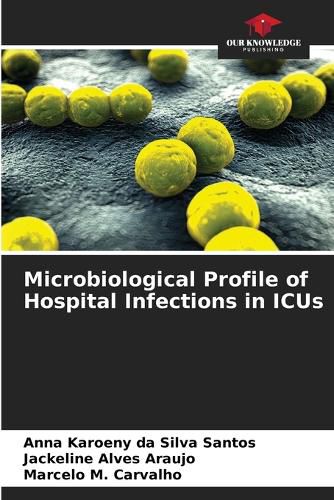Readings Newsletter
Become a Readings Member to make your shopping experience even easier.
Sign in or sign up for free!
You’re not far away from qualifying for FREE standard shipping within Australia
You’ve qualified for FREE standard shipping within Australia
The cart is loading…






This title is printed to order. This book may have been self-published. If so, we cannot guarantee the quality of the content. In the main most books will have gone through the editing process however some may not. We therefore suggest that you be aware of this before ordering this book. If in doubt check either the author or publisher’s details as we are unable to accept any returns unless they are faulty. Please contact us if you have any questions.
Hospital-acquired infections are a serious public health problem, leading to increased morbidity and mortality among patients admitted to intensive care units, complications related to health care, as well as longer hospital stays and consequently higher hospital costs. The aim of this study was to investigate the microbiological profile of hospital-acquired infections in intensive care units (ICUs) at a public hospital of reference for high complexity in the state of Piaui. A total of 33 medical records were assessed for the months of June, July, August and September 2014. A death rate of 57.6 per cent was identified, 33.3 per cent related to respiratory system infection, with Klebsiella spp responsible for 22.2 per cent of infection cases, which revealed 100 per cent sensitivity to carbapenem antimicrobials (meropenem, ertapenem, imipenem), followed by Acinetobacter spp (18.5%), Pseudomonas aeruginosa (14.8%) and Escherichia coli (11.1%), respectively sensitive to Poliximine B and Tigecycline(100%), Amikacin(100%), and Amikacin(100%), Cefepime(100%), Tigecycline(100%).
$9.00 standard shipping within Australia
FREE standard shipping within Australia for orders over $100.00
Express & International shipping calculated at checkout
This title is printed to order. This book may have been self-published. If so, we cannot guarantee the quality of the content. In the main most books will have gone through the editing process however some may not. We therefore suggest that you be aware of this before ordering this book. If in doubt check either the author or publisher’s details as we are unable to accept any returns unless they are faulty. Please contact us if you have any questions.
Hospital-acquired infections are a serious public health problem, leading to increased morbidity and mortality among patients admitted to intensive care units, complications related to health care, as well as longer hospital stays and consequently higher hospital costs. The aim of this study was to investigate the microbiological profile of hospital-acquired infections in intensive care units (ICUs) at a public hospital of reference for high complexity in the state of Piaui. A total of 33 medical records were assessed for the months of June, July, August and September 2014. A death rate of 57.6 per cent was identified, 33.3 per cent related to respiratory system infection, with Klebsiella spp responsible for 22.2 per cent of infection cases, which revealed 100 per cent sensitivity to carbapenem antimicrobials (meropenem, ertapenem, imipenem), followed by Acinetobacter spp (18.5%), Pseudomonas aeruginosa (14.8%) and Escherichia coli (11.1%), respectively sensitive to Poliximine B and Tigecycline(100%), Amikacin(100%), and Amikacin(100%), Cefepime(100%), Tigecycline(100%).